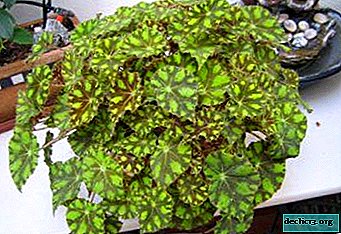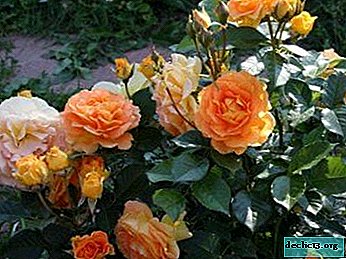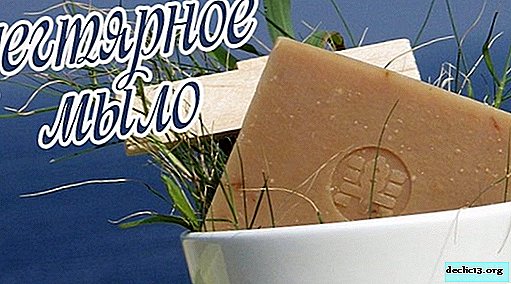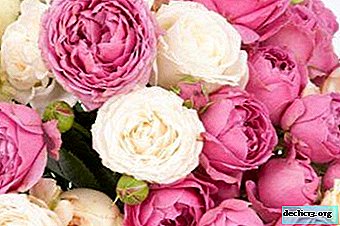Magical and real properties of gardenia and its products

Indoor gardenia can compete with many flowering plants. She liked flower lovers for the unusual decorative properties of the bush.
It also turned out to be no less popular in medicine and cosmetology, due to the rare chemical composition.
The aroma of a marvelous plant can even outshine a rose. One flower is enough to fill the whole room with a delicate and delicate fragrance.
What is this plant and is it possible to keep it at home?
Evergreen shrub of the family Marenovye. Grows in the Far East, in India, China. Gained fame back in the 18th century. In the wild, reaches 2 meters in height, has large dense leaves with a length of about 10 cm, with a smooth texture. Flowers are white, with a diameter of up to 8 cm, collected in inflorescences. Gardenia has a refined, unobtrusive aroma, something similar to jasmine. Flowering Duration: July to October.
For home growing, only one type of gardenia is suitable - jasmine.The variety is quite unpretentious, does not require special conditions. Jasmine gardenia prefers tropical climate, hot and humid. Therefore, in a room with a flower, the temperature should be maintained at + 23-25 ° С, humidity - 50-70%.
Healing essential oils
Gardenia has established itself as a plant with healing properties. This was facilitated by the chemical composition of the flower:

- leaves and fruits contain substances glycosides, which have antipyretic and antiseptic properties;
- The essential oil consists of benzyl acetate, phenylacetate, linalol, linlyl acetate, terpineol, methylanthranilate.
In production, the process of producing flower oil is complex and laborious. For this reason from gardenia, essential oil is produced synthetically.
Toxic or not?
When buying a houseplant for the first time, the question always subconsciously arises: "Is the flower poisonous or not?". Indeed, among the decorative representatives of the flora there are many types dangerous to human health. However, gardenia does not apply to them.
It has low toxicity. If juice enters the body, there is no danger to life.
But anyway eating fresh leaves or inflorescences is not recommended. The consequences are fraught with:
- diarrhea;
- vomiting
- dizziness
- nausea
Typically, the juice of a plant gets on its hands during the cutting procedure, to protect yourself from troubles, it is better to wear disposable gloves, and after the process - wash your hands and tool with soap.
It is believed that gardenia has some magical properties, for example, brings peace and peace to the family. Promotes the creation of a comfortable atmosphere in the house.Skeptics explain this by the fact that the flower is a bright decoration of the modern interior, and the pleasant smell favorably affects the nervous system, helps to escape from depression and spleen, improves moods.
Application in traditional medicine
This plant is often used in folk medicine. On the basis of fruits, bark, gardenia roots, decoctions, tinctures are prepared.
Phytotherapists distinguish the following medicinal properties of a flower:
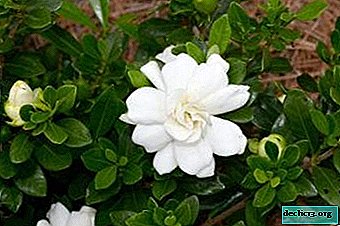 anti-inflammatory;
anti-inflammatory;- antipyretic;
- antispastic;
- antiseptic;
- wound healing;
- soothing;
- choleretic;
- anthelmintic.
Even in ancient China they knew the miraculous power of gardenia. With its help, and currently treat:
- stomatitis;
- hepatitis;
- jade;
- tonsillitis.
Decoctions help with diseases:
- skin
- the stomach;
- liver
- kidney
- biliary tract.
Shredded fruits are applied to wounds, bruises, burns, they relieve inflammation, helps rejuvenate the skin.
Infusions are used for:
- insomnia;
- migraine;
- overwork;
- neurosis;
- hypertension.
Properties of the flower stem cell extract
Conducting research scientists revealed ferulic acid in stem cells of gardenia.
 A substance that is extremely important in cosmetology, because it has an antioxidant property.
A substance that is extremely important in cosmetology, because it has an antioxidant property.
Products containing ferulic acid interfere with the aging process of the skin.
During the experiments, it was noticed how plant cells stimulate the elimination of toxins and promote collagen formation. Due to the skin:
- becomes smoother and firmer;
- wrinkles are reduced;
- complexion improves.
Also in gardenia cells contains a significant amount:
- amino acids;
- enzymes;
- antioxidants.
The best time to extract the plant extract is the beginning of spring, during the period of active vegetation of the flower. Young buds, roots, processes are considered the best material for extracting the substance.
They have the maximum content of juice and useful trace elements. For industrial purposes, the extract is extracted thanks to the biosynthetic method.
Technology allows you to get a large amount of the desired extract, while not destroying a huge number of plants.Substances from gardenia cells are used not only for skin care, but also for hair. Extract:
- stimulates growth;
- strengthens hair;
- makes them voluminous and shiny.
Receiving and using ether
 Oil obtained from jasmine gardenia is quite rare, and therefore so valuable.
Oil obtained from jasmine gardenia is quite rare, and therefore so valuable.
In laboratory conditions, it is impossible to establish the process of manufacturing ether.
To obtain a plant substance, extraction is used.
The synthetic method involves the following:
- dry raw materials are treated with natural solvents, in the end get specific;
- this semi-finished product is diluted with alcohol;
- after a while, when the impurities precipitate, a yellow oily liquid with a delicate floral aroma is obtained - gardenia ester.
Essential oil is widely used in cosmetology. On its basis, simple homemade perfumes are made, as well as complex expensive compositions.
The aromas are well combined with gardenia ether:
- citrus fruits;
- jasmine
- roses;
- ylang ylang.
In medicine, essential oil is used less often than in cosmetology. Among the useful properties of the substance:
- Due to its antibacterial properties, flower oil dries up inflammation, preventing subsequent reactions.
- The oil whitens, making the skin well-groomed and less oily.
- Stimulates skin cells to regenerate.
- Nourishes, strengthens hair.
- Its pleasant aroma tones, gives vigor, strength.
- Increases efficiency, and also normalizes the psychological state, will help get rid of insomnia.
- Gives skin elasticity, so you can cope with cellulite and stretch marks on the body.
The gardenia ether is an indispensable component:
- creams;
- means for moisturizing the body;
- masks;
- shampoos.
Contraindications
 Before use, you should consult your doctor, perhaps there is an individual intolerance.
Before use, you should consult your doctor, perhaps there is an individual intolerance.
Basically, the means of which gardenia is a component are not recommended:
- pregnant women and women during lactation;
- concomitant use of oral contraceptives;
- children under 7 years old;
- in the presence of allergic reactions.
Many gardeners consider the evergreen shrub a moody plant.
Therefore, they do not breed gardenia, thereby depriving themselves of the pleasure of feeling a pleasant, delicate, delicate aroma without leaving the house. Inhale it when you want, and not resort to the man-made creations of perfumers.

 anti-inflammatory;
anti-inflammatory;








